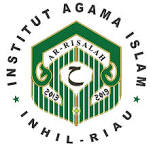Integrating Artificial Intelligence in Islamic Education Management: Challenges and Opportunities in the Digital Era
DOI:
https://doi.org/10.61104/qd.v1i1.375Abstract
The integration of Artificial Intelligence (AI) in Islamic education management has become a significant development in the digital era, offering opportunities to enhance teaching, learning, and institutional governance while upholding Islamic values and ethical principles. This study aims to analyze the challenges and opportunities associated with AI implementation in Islamic higher education institutions, focusing on how innovation can align with maqasid al-shariah and pedagogical traditions. Using a qualitative descriptive-analytical design, data were collected through in-depth interviews with educational leaders, lecturers, and IT experts from five Islamic universities in Indonesia and Malaysia, supported by document analysis of institutional policies and AI implementation frameworks. The findings reveal that AI facilitates personalized learning, predictive analytics, and administrative efficiency, strengthening academic performance and institutional competitiveness. However, significant challenges remain, including algorithmic bias, data privacy concerns, and the potential erosion of educators’ roles in character formation
References
Abdullah, M., & Ahmad, R. (2023). Integrating Islamic educational values into AI-driven learning environments. Journal of Islamic Educational Studies, 15(2), 55–72. https://doi.org/10.1080/jiest.2023.152
Alotaibi, F., & Hussain, A. (2021). Artificial intelligence applications for Islamic knowledge management: Opportunities and challenges. International Journal of Information Management, 59, 102540. https://doi.org/10.1016/j.ijinfomgt.2021.102540
Holmes, W., Bialik, M., & Fadel, C. (2022). Artificial intelligence in education: Promises and implications for teaching and learning. Cambridge University Press. https://doi.org/10.1017/9781009073857
Luckin, R., Holmes, W., Griffiths, M., & Forcier, L. B. (2022). Intelligence unleashed: An argument for AI in education. Pearson Education. https://doi.org/10.13140/RG.2.2.22556.28807
OECD. (2023). Artificial intelligence and the future of education. OECD Publishing. https://doi.org/10.1787/ai-edu-2023
UNESCO. (2023). Artificial intelligence in education: Challenges and opportunities. United Nations Educational, Scientific and Cultural Organization. https://unesdoc.unesco.org/ark:/48223/pf000038
Zawacki-Richter, O., Marín, V. I., Bond, M., & Gouverneur, F. (2019). Systematic review on artificial intelligence applications in higher education. International Journal of Educational Technology in Higher Education, 16(1), 1–27. https://doi.org/10.1186/s41239-019-0171-0
Baker, R. S., & Inventado, P. S. (2020). Educational data mining and learning analytics: Applications of AI in higher education. Journal of Learning Analytics, 7(3), 85–107. https://doi.org/10.18608/jla.2020.73
Chen, X., Xie, H., & Hwang, G. J. (2021). Trends and practices of artificial intelligence in K-12 education: A systematic review. Educational Research Review, 34, 100408. https://doi.org/10.1016/j.edurev.2021.100408
Siau, K., & Yang, Y. (2021). Impact of artificial intelligence on higher education. Journal of Educational Technology Development and Exchange, 14(1), 1–20. https://doi.org/10.18785/jetde.1401.02
Hwang, G. J., & Tu, Y. F. (2022). Roles and applications of artificial intelligence in smart education. Computers & Education: Artificial Intelligence, 3, 100055. https://doi.org/10.1016/j.caeai.2022.100055
Shahroom, A. A., & Hussin, N. (2018). Industrial revolution 4.0 and education. International Journal of Academic Research in Business and Social Sciences, 8(9), 314–319. https://doi.org/10.6007/IJARBSS/v8-i9/4593
Sun, Z., & Chen, C. (2022). The ethics of AI-driven education: A global perspective. AI & Society, 37(3), 1161–1176. https://doi.org/10.1007/s00146-021-01317-4
Popenici, S. A., & Kerr, S. (2017). Exploring the impact of artificial intelligence on teaching and learning in higher education. Research and Practice in Technology Enhanced Learning, 12(1), 1–13. https://doi.org/10.1186/s41039-017-0062-8
Wang, Y., & Chen, N. S. (2020). A literature review of AI-supported educational assessments. Computers & Education, 161, 104079. https://doi.org/10.1016/j.compedu.2020.104079
Downloads
Published
How to Cite
Issue
Section
License
Copyright (c) 2025 Said Maskur, Hasyamuddin Bin Othman

This work is licensed under a Creative Commons Attribution-ShareAlike 4.0 International License.








